Organisation
The Pilecki Institute was established by the Polish Parliament on 9 November 2017, [1] and following year incorporated the Witold Pilecki Center for Totalitarian Studies. [9] On 2017 the institute was given a one-time lump sum of PLN 75 million (roughly $18.7 million) by the Polish parliament, which was used to launch the institute and cover operational expenses through 2019. In 2020, the institute received a specified-user subsidy of PLN 20 million (roughly $5 million) from the Ministry of Culture and National Heritage. Its aim is to analyse the importance for the history of the 20th century of the Nazi and Soviet totalitarian regimes and the global consequences of their actions. [10] The Institute is supervised by the Minister of Culture and National Heritage. [1]
The Institute is governed by the director – Wojciech Kozłowski. A consultative and advisory body to the Director of the Institute is the Council of Memory whose members are appointed by the Minister of Culture and National Heritage. Amongst them are, e.g.: Grzegorz Berendt, Sławomir Dębski, Jan Ołdakowski, Albert Stankowski. The chairperson is prof. Zofia Zielińska. [11]
The Institute is divided into:
- Department of Archives
- Education Department
- Promotion and Production Team
- Personnel Department
- Research Department
- Publishing Department
- Personal Data Controller
- Accounting Department
- Competitive Tendering
- Film Projects Team
- Translation Team
- Library
- Press Office
- Administrative Department
- Berlin Branch
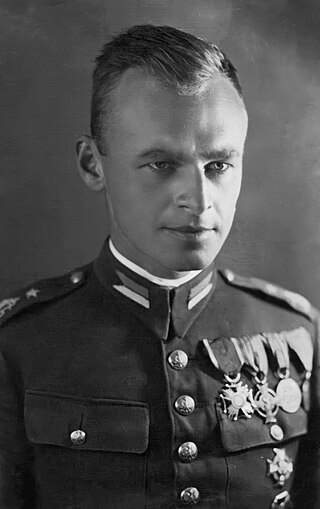
Witold Pilecki was a Polish World War II cavalry officer, intelligence agent, and resistance leader.
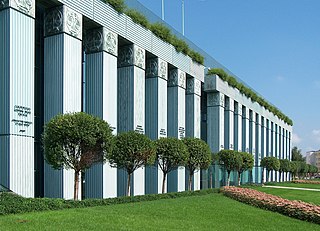
The Supreme Court is the highest court in the Republic of Poland. It is located in the Krasiński Square, Warsaw.

Henryk Woliński (1901–1986) was a member of the Polish resistance movement in World War II, specifically the Armia Krajowa (AK), where he reached the rank of colonel. He was the head of the "Jewish Department" in AK's Bureau of Information and Propaganda. His codename was "Wacław". He was recognized by Yad Vashem as one of the Righteous among the Nations. He himself harbored in his apartment over 25 Jews for a period going from a few days to several weeks.

Witold's Report, also known as Pilecki's Report, is a report about the Auschwitz concentration camp written in 1943 by Witold Pilecki, a Polish military officer and member of the Polish resistance. Pilecki volunteered in 1940 to be imprisoned in Auschwitz to organize a resistance movement and send out information about the camp. He escaped from Auschwitz in April 1943. His was the first comprehensive record of a Holocaust death camp to be obtained by the Allies.
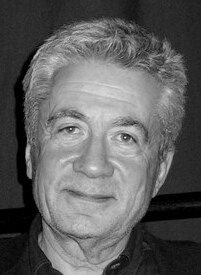
Iwo Byczewski is a Polish diplomat. He served as Deputy Foreign Minister (1991–1995), Ambassador to Belgium and Permanent Representative to the European Union.
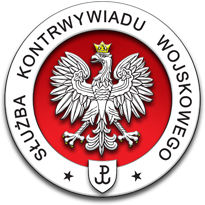
The Military Counterintelligence Service is one of the principal intelligence agencies of Poland. It is responsible for the protection of Poland against internal threats and for the combat capability of the Polish Armed Forces.

Aleksander Wacław Ładoś [alɛ'ksandɛr 'wadoɕ] was a Polish politician and diplomat, who 1940–45 headed the Legation of Poland to Switzerland. Ładoś was a member and de facto leader of the Ładoś Group, also known as Bernese Group, a secret action by the Polish diplomats and Jewish organizations who helped save several hundred Jews from the Holocaust by providing them with illegal Latin American, mostly Paraguayan passports.
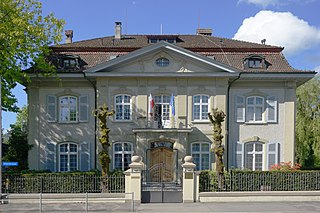
Ładoś Group, Bernese Group is a name given to a group of Polish diplomats and Jewish activists who during Second World War elaborated in Switzerland a system of illegal production of Latin American passports aimed at saving European Jews from the Holocaust. It is estimated that thanks to the action about 10,000 people were saved from being sent to German extermination camps.

Urszula Doroszewska is a Polish diplomat, journalist and sociologist, ambassador to Georgia (2008–2013) and Lithuania (2017–2023).

Aleksandra Maria Piątkowska is a Polish civil servant and diplomat, serving as an ambassador to Chile (2012–2017) and Argentina.

Andrzej Papierz is a Polish journalist and diplomat, serving as an Ambassador to Montenegro since 2023. Prior to that, he was Ambassador of Poland to Bulgaria (2007–2010), the Undersecretary of State at the Ministry of Foreign Affairs (2018), and the Director General of the Foreign Service (2018–2021).

Ministry of Entrepreneurship and Technology is a Polish government administration office.

Ministry of Economy and Labour is a Polish abolished government administration office in charge of economy, labor, regional development, tourism.
Ministry of Construction is an abolished Polish government administration office serving the minister in charge of construction, spatial management and housing.

The Virtus et Fraternitas Medal is a Polish state decoration established on 9 November 2017.
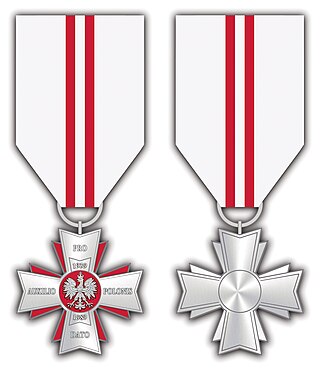
The Western Cross is a Polish decoration established on 7 April 2017.

The Eastern Cross is a Polish decoration established on 15 December 2016.
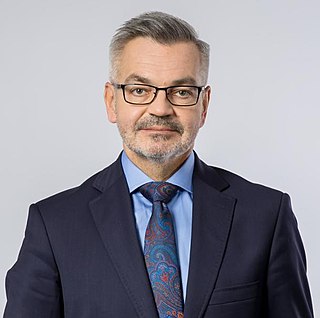
Krzysztof Adam Krajewski is a Polish diplomat; ambassador to Azerbaijan (2005–2010), Bulgaria (2014–2018), and Russia.

Piotr Antoni Świtalski is a Polish diplomat; permanent representative of Poland to the Council of Europe (2005–2010) and ambassador of the European Union to Armenia (2015–2019).

Maciej Pisarski is a Polish diplomat, serving as an ambassador to Pakistan.
This page is based on this
Wikipedia article Text is available under the
CC BY-SA 4.0 license; additional terms may apply.
Images, videos and audio are available under their respective licenses.



















